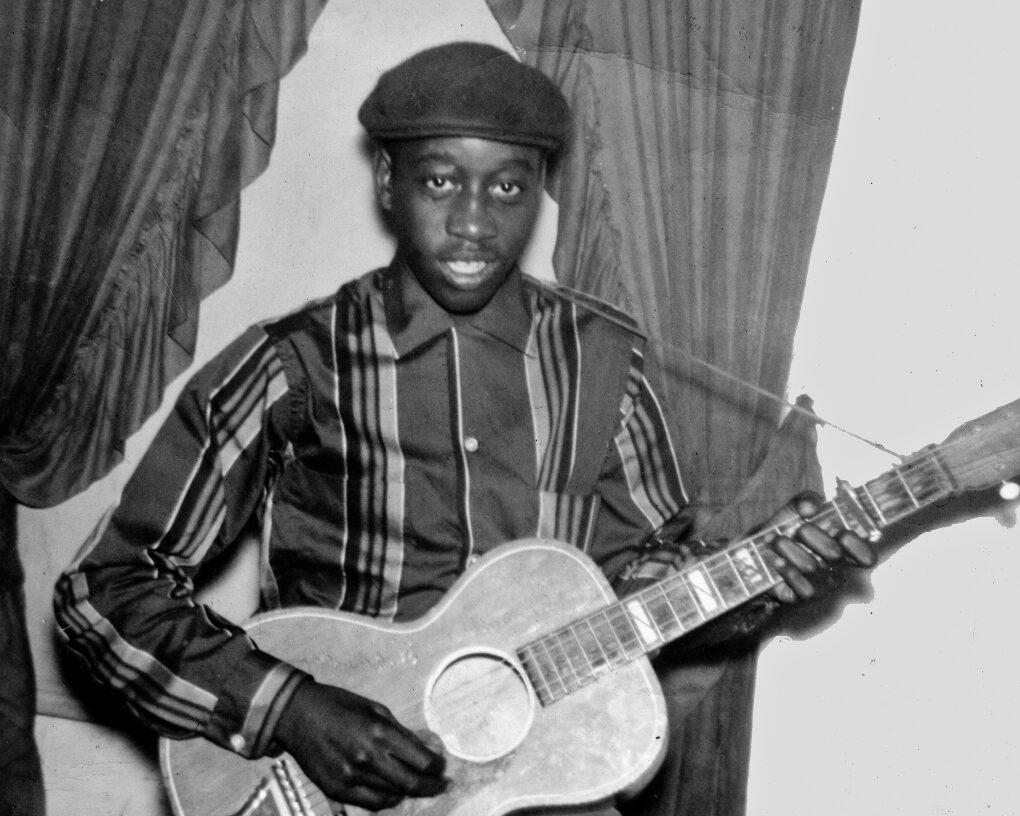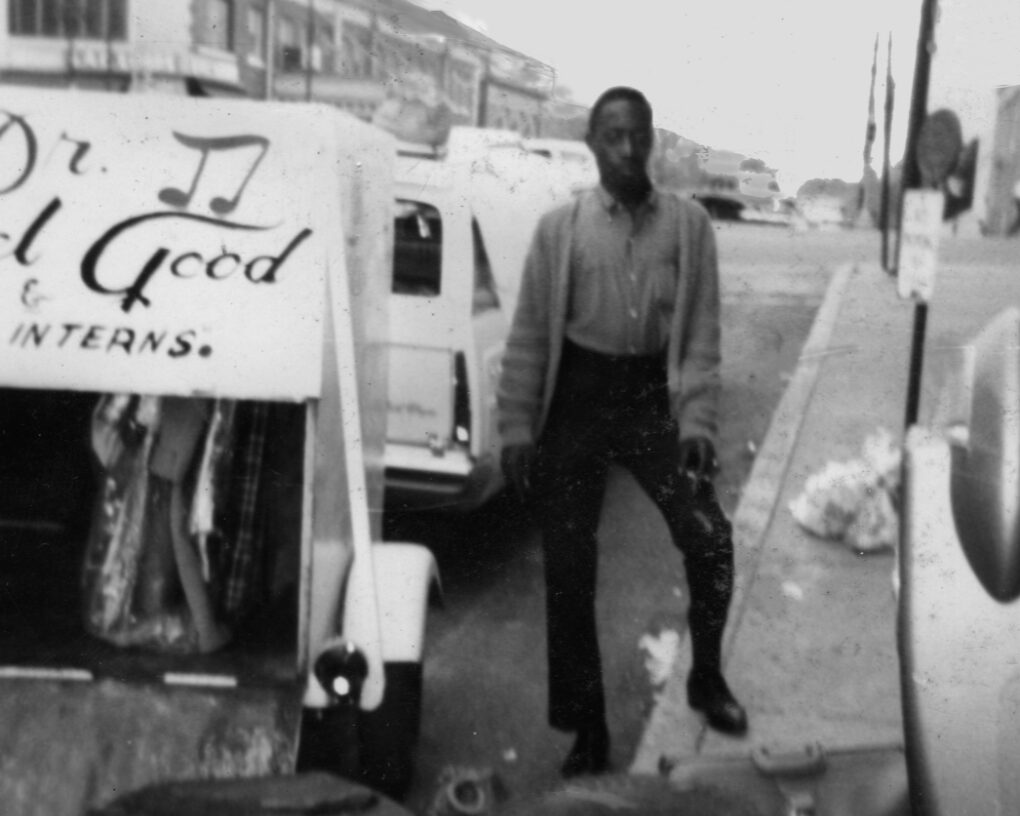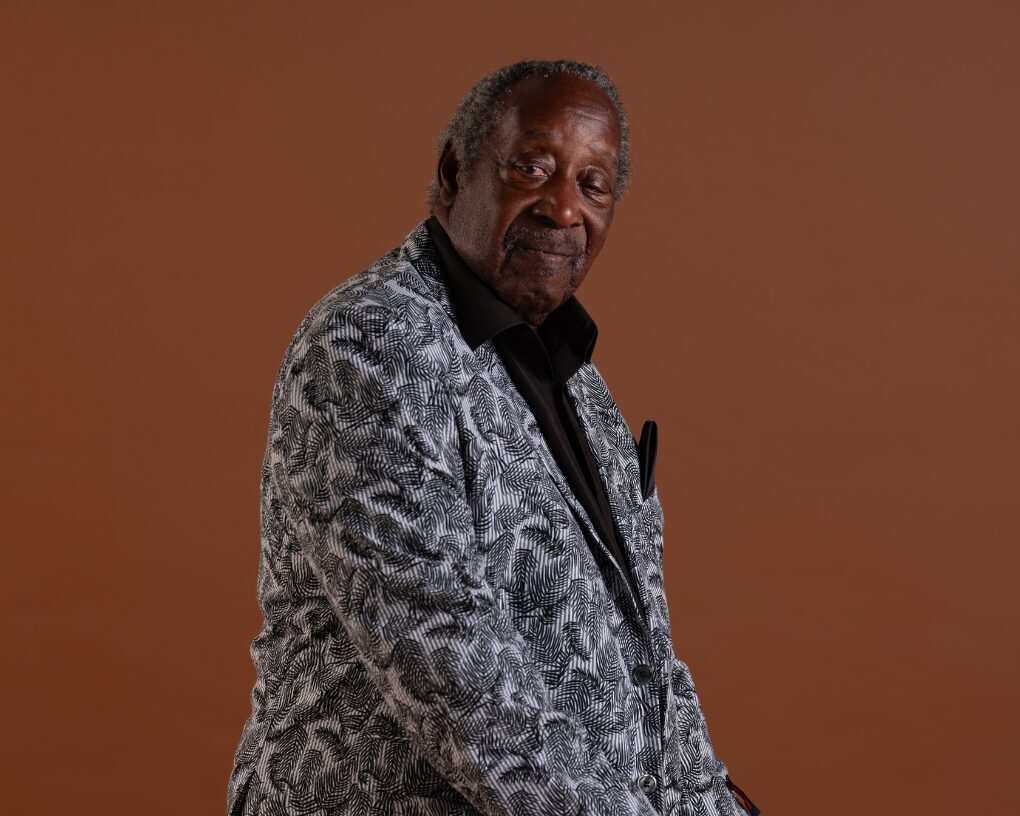Albert White’s “definitive statement”
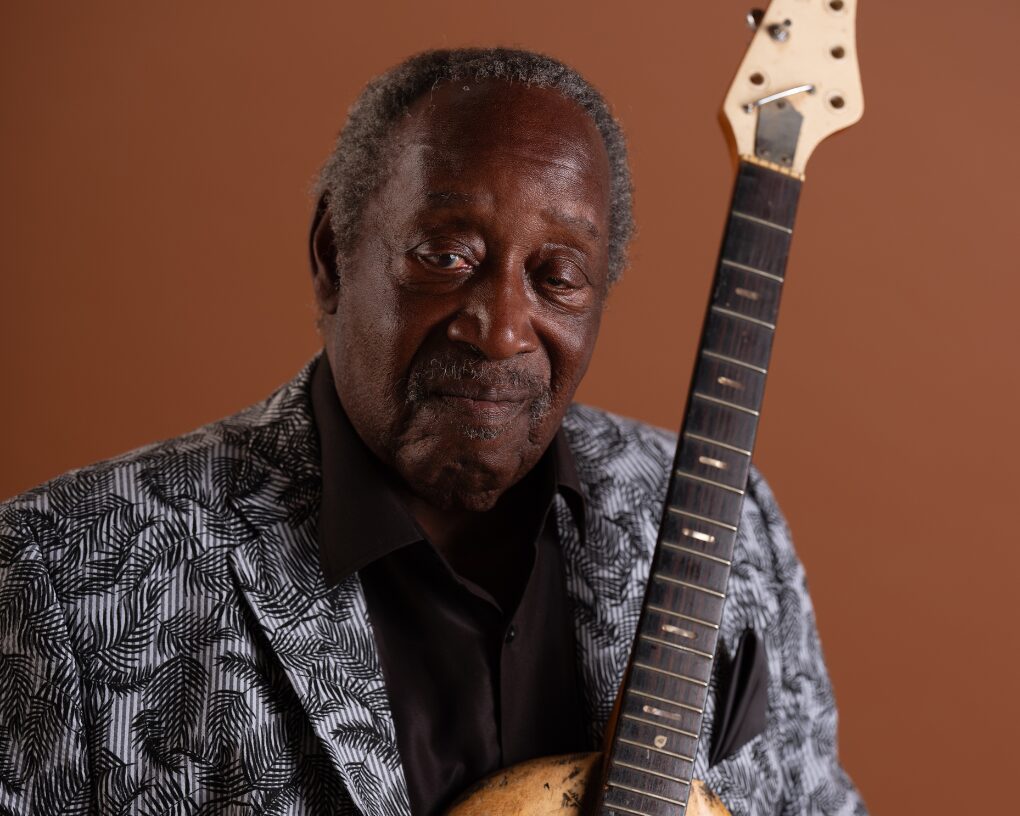
By Grayson Haver Currin
Albert White did not perform at the first session at Music Maker’s new studio in a retrofitted soda shop in Fountain, Noth Carolina. But as Earnest “Guitar” Roy cut his debut, White sat there with his red Gibson 335, anyway, playing along and working through licks as Roy tracked.
“Albert was just hanging out, his guitar in his hand the whole time,” remembers Jimbo Mathus, who produced that start in May 2024, with a laugh. “He just obsessively plays, all the time. He’s a musician’s musician.”
Being to the side of the star, after all, is a familiar role for White. For the bulk of his 70-year career, White, now 82, supported singers with his strings. As a child in Georgia, he toyed with the guitar someone had given his father, but he really learned to play on a ukulele. Hearing him, his uncle, the barrelhouse blues legend Piano Red, soon sent young White to his own guitarist for Saturday lessons.
White bought his first Fender Stratcaster in 1961, his entry point into a lifetime of working bands. His high-school trio—dubbed by a neighbor “the Little Rockers,” though they quickly dropped the Little—would crisscross Georgia playing the college circuit. They backed folks like Al Green at the American Legion, south of Atlanta in Stockbridge, and played with Ray Charles at Morris Brown College’s Herndon Stadium. They’d show up on Wednesdays to watch Piano Red’s band rehearse, absorbing whatever tricks they managed to remember.
“I had a great ear, where I could listen to new songs and pick them up right away,” says White, who went on to back Piano Red for years. “I was there with my eyes open, trying to do it. If they played something we didn’t do, we’d talk about it the next day and say, ‘What was that they were doing?’”
When that first session in Fountain was done, White dispatched a copy of the song list he keeps in his guitar case to Mathus—some 47 tunes he still plays with his band, a chronicle of his life in music, spanning Hank Ballard, Mayfields Curtis and Percy, and Koko Taylor. In those songs, Mathus and Music Maker founder Timothy Duffy understood that White could finally sing his own story, rather than playing along to someone else’s tale. At Duffy’s request, White had stepped to the microphone for the first time on his 2007 Music Maker debut, Soul of the Blues. “I was shy, and I thought I would get up there and mess up,” he says, chuckling. “But once I started doing songs, I felt pretty good about it.”
When White returned to Fountain several weeks later, he and a cracking backing band Mathus had assembled—including legendary James Brown bassist Fred Thomas—ripped through a dozen tunes, getting most of them in a take or two. Mathus marveled at how fresh and youthful White’s voice was, as if he had been resting it while learning from so many greats for so long. He had, after all, seen The Tams record “Untie Me” 60 years earlier, even supported them; in the studio, he sounded cool and confident delivering it himself. He crooned his way through Green’s “Let’s Stay Together,” his voice as easy and real as a lover’s plea. Mathus realized during the sessions that this album needed to be called The Definitive Albert White, as White was finally stepping forward well after his 80th birthday.
“Albert had all these arrangements in his head, and we just did them,” says Mathus. “He’s so focused and positive, exuberant. The goal was just to put him in the spotlight, man. This is his definitive statement.”
The Definitive Albert White arrives Friday, March 7th, 2025.
Grayson Haver Currin is a longtime music journalist and former newspaper editor from North Carolina. He has written for Pitchfork, The New York Times, Rolling Stone, NPR, and The Washington Post.
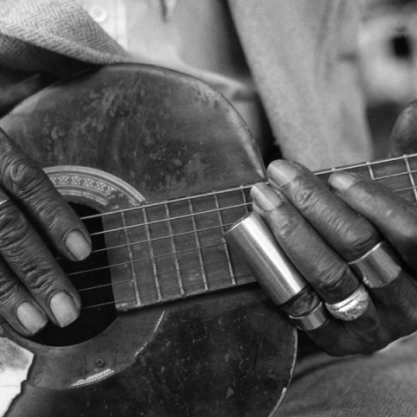
Get involved
& give back
The Music Maker Foundation is a 501(c)(3) nonprofit organization that depends on thousands of supporters. Together, we work to meet the day-to-day needs of the artists who create traditional American music, ensure their voices are heard, and give all people access to our nation’s hidden musical treasures. Please contribute or shop our store today.
